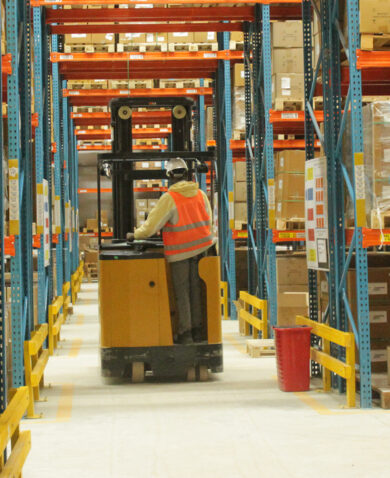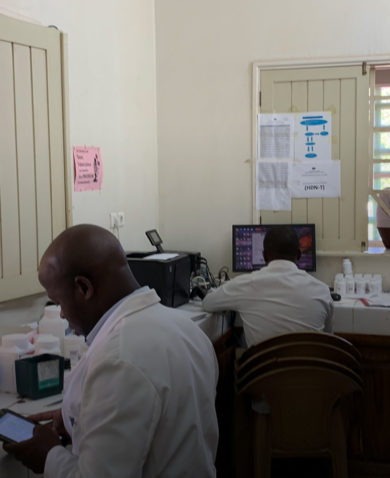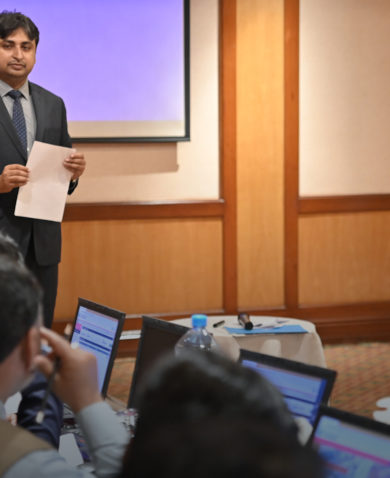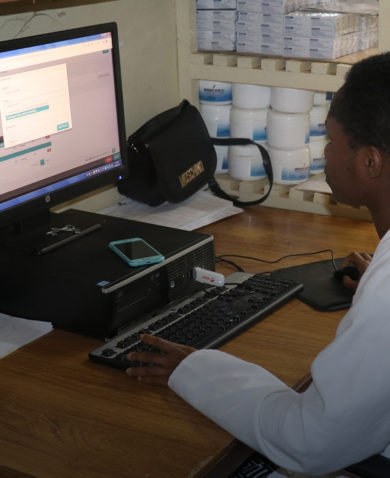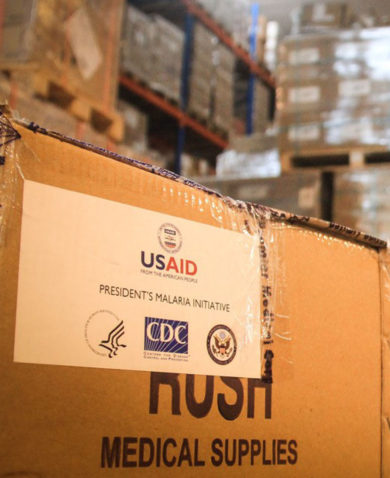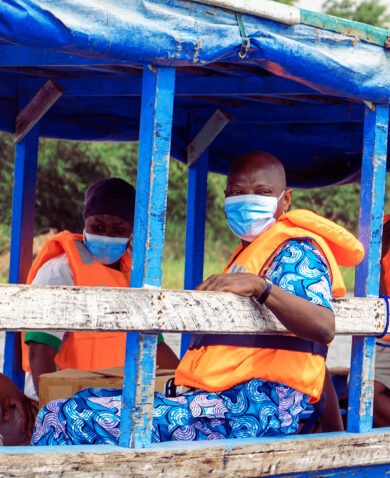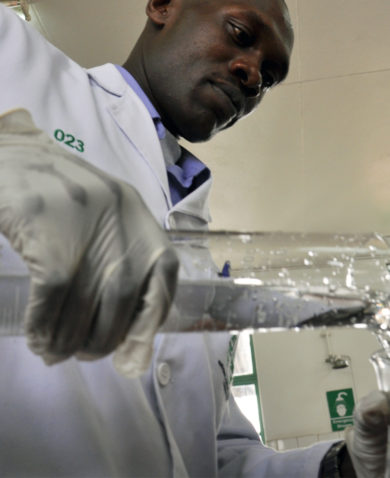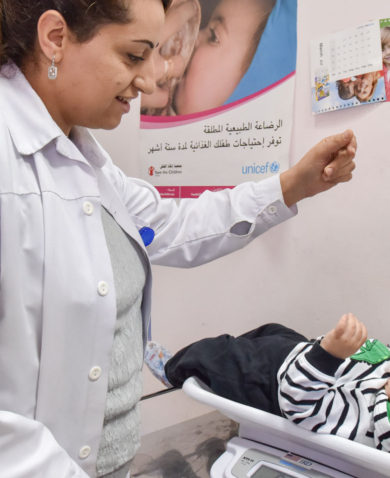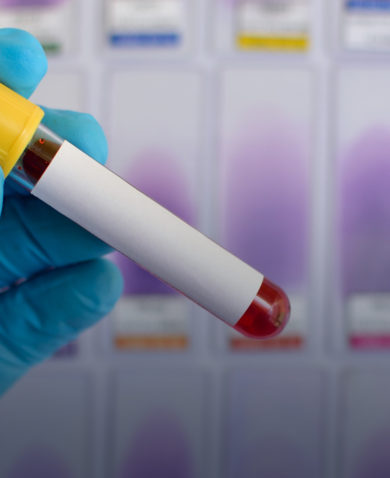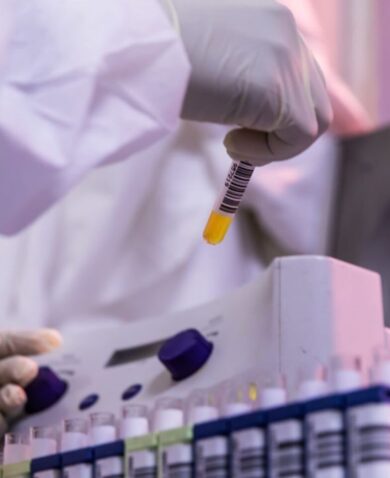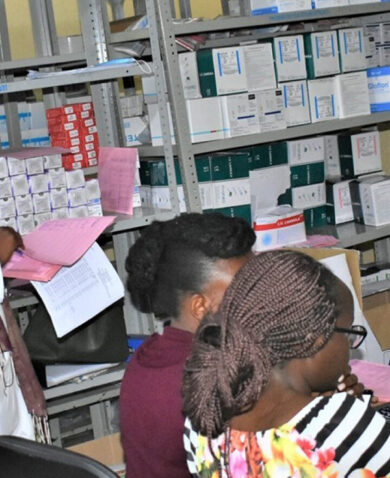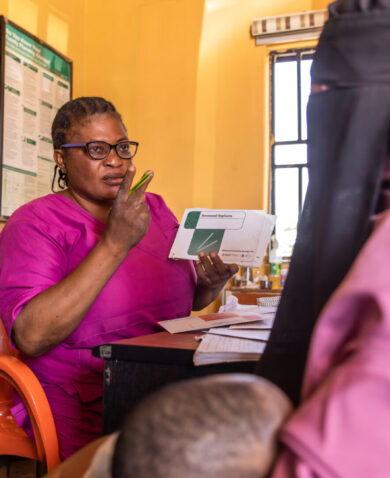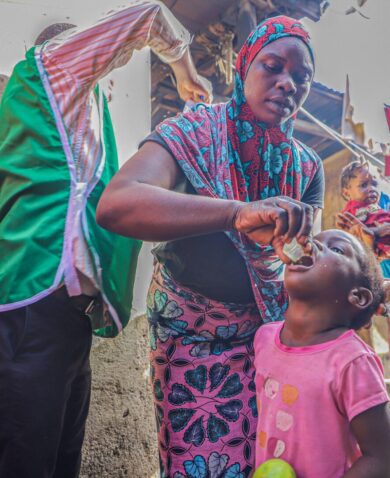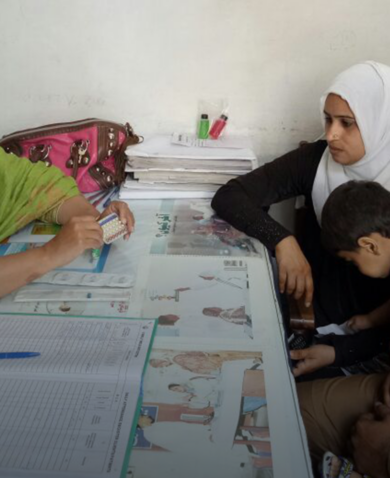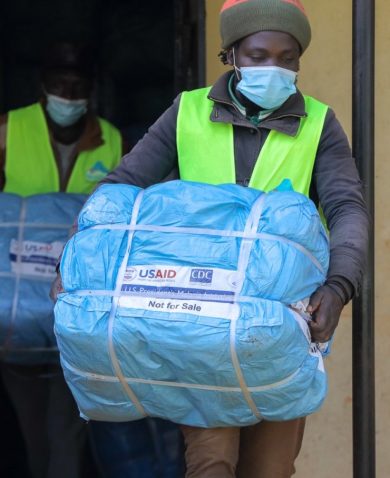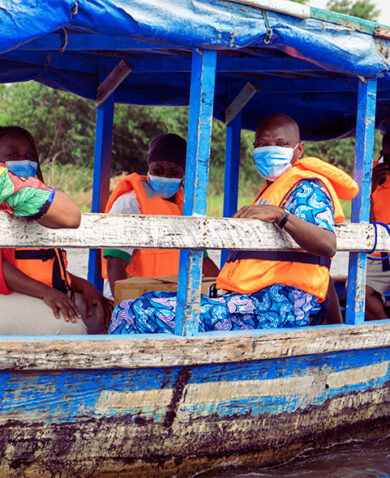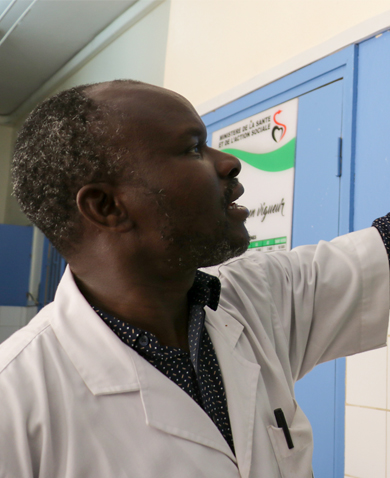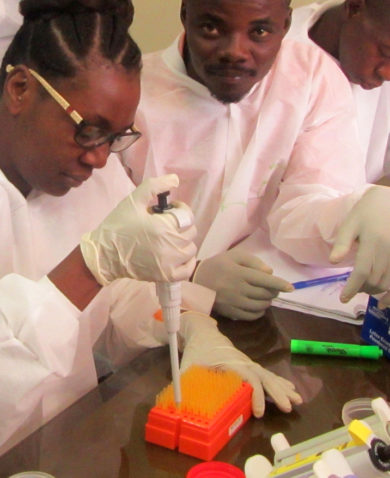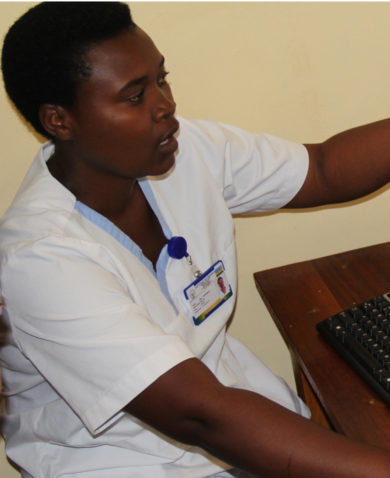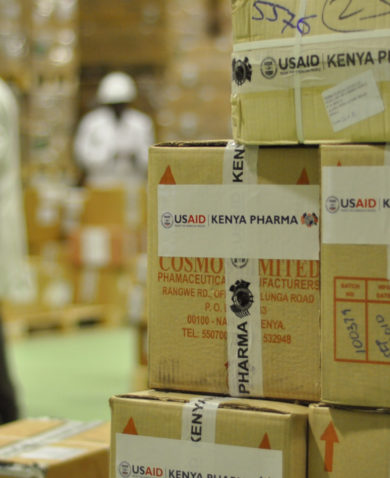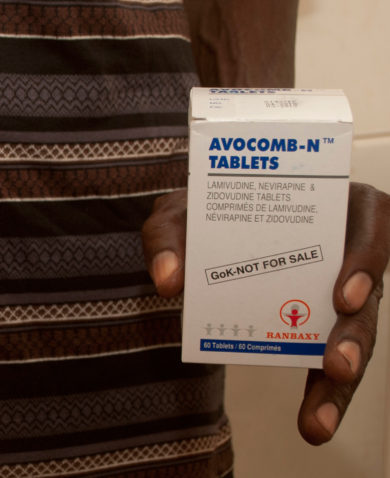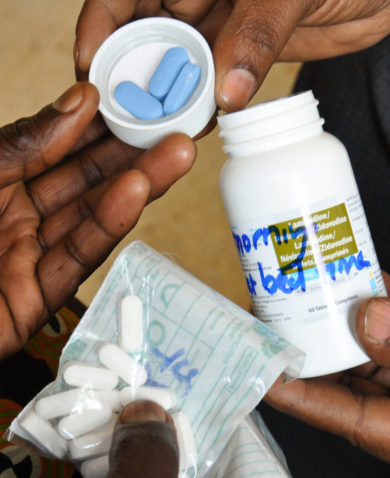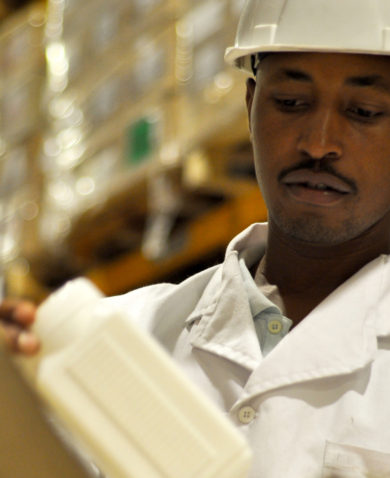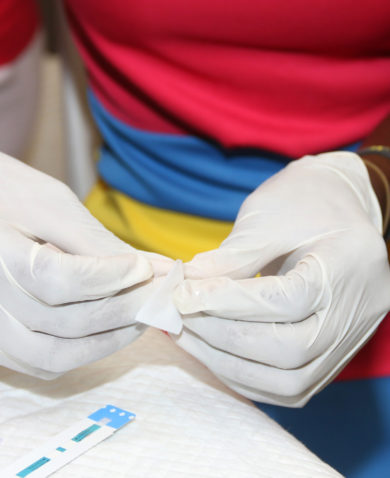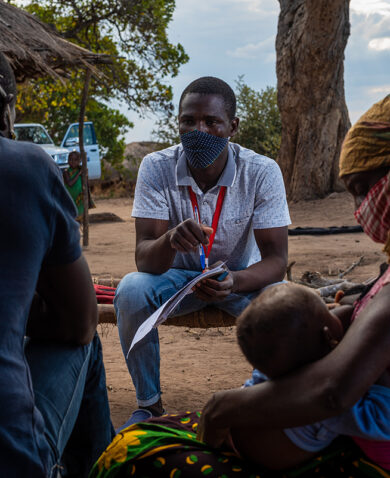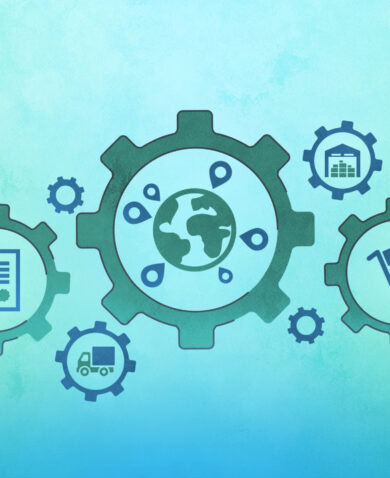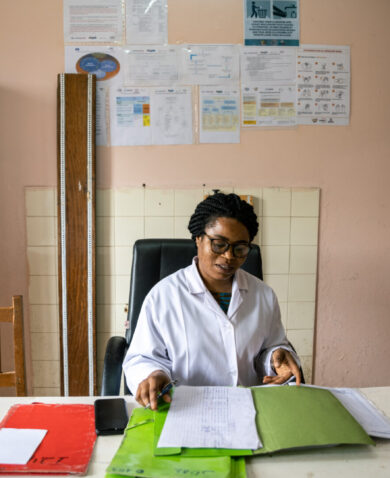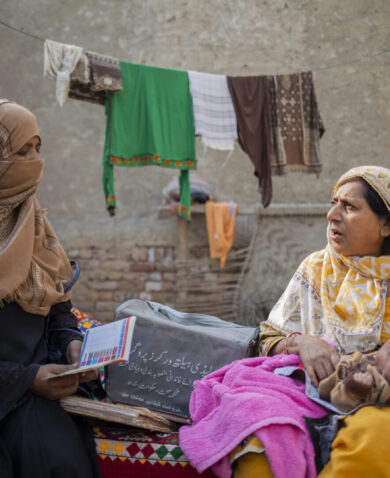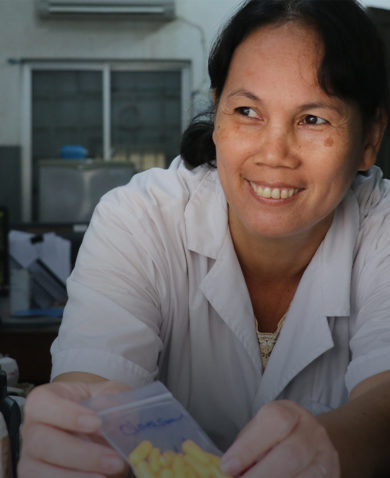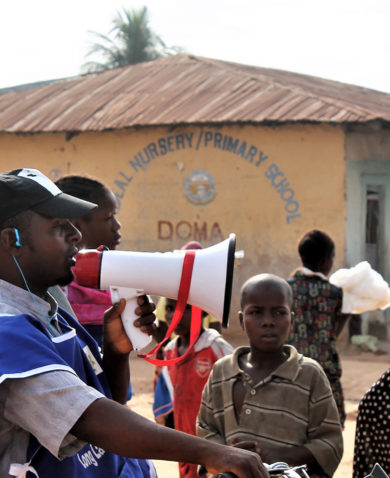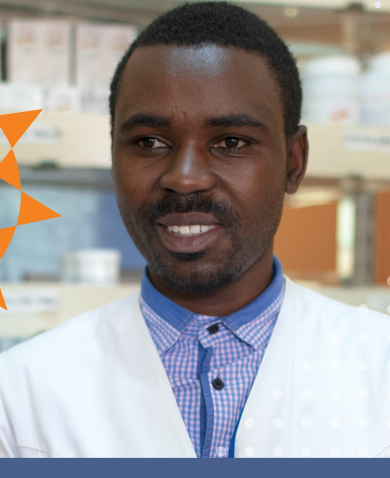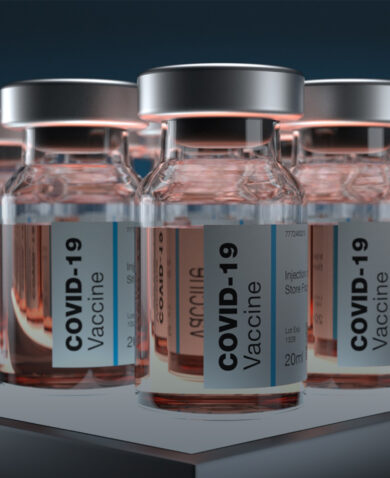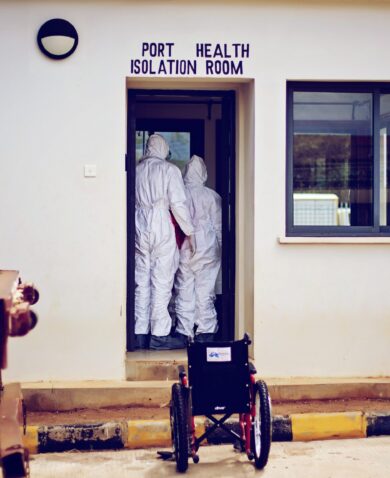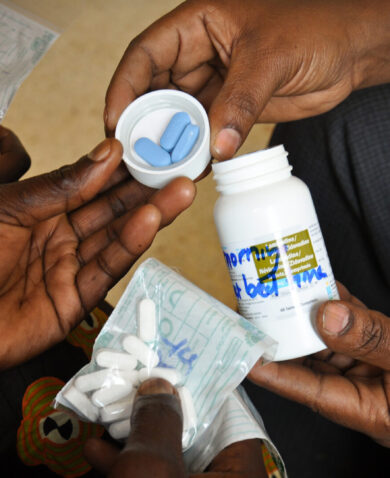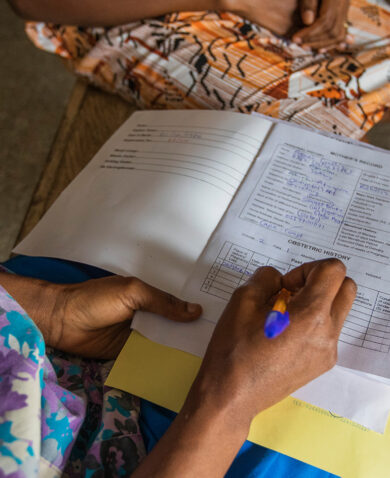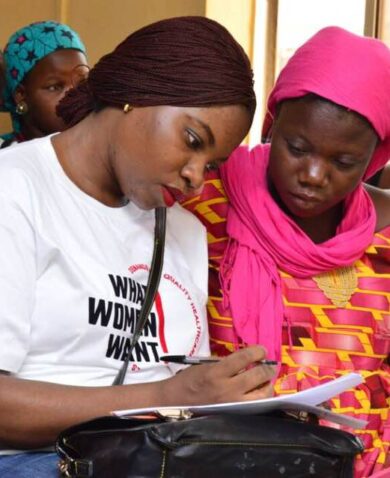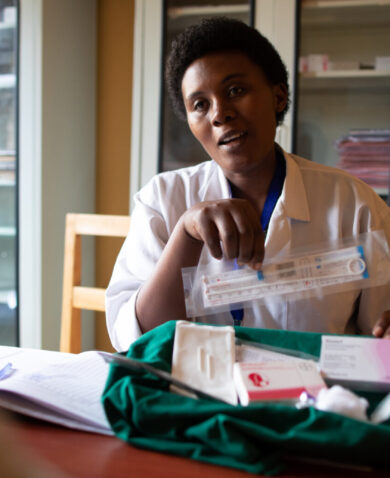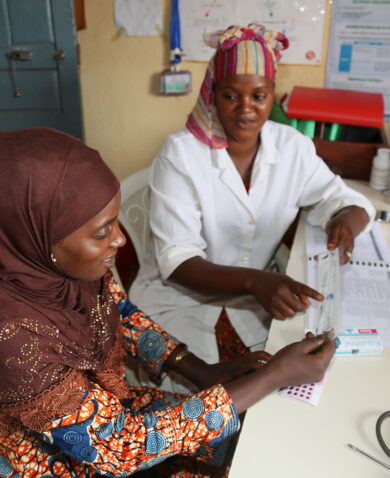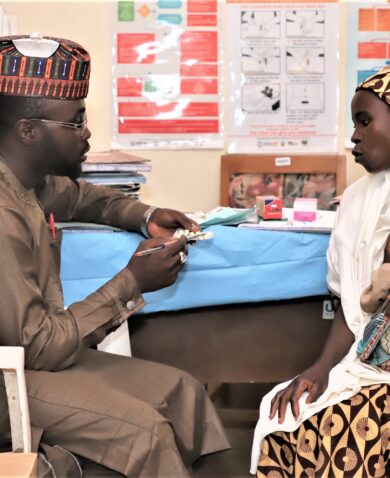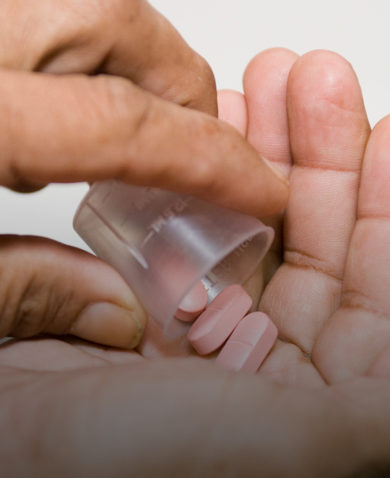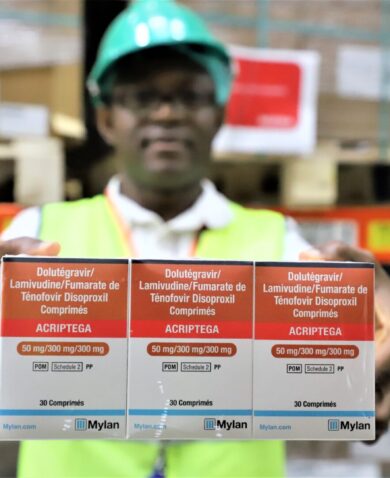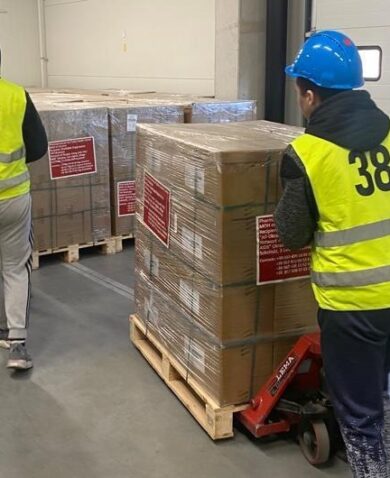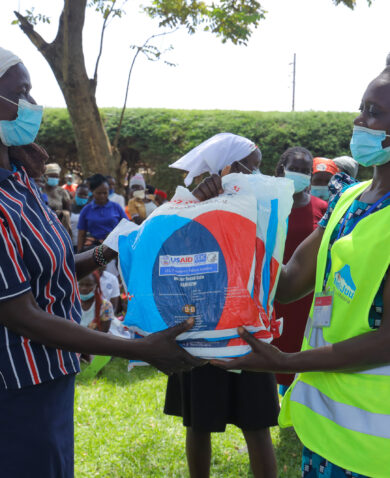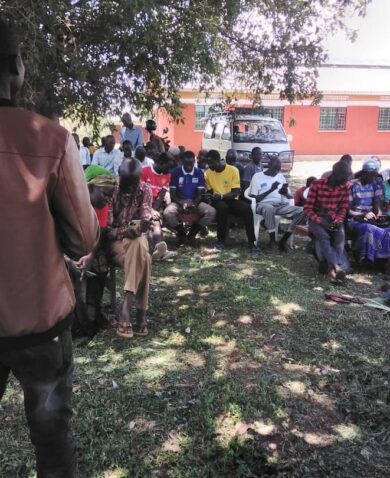
Private Partnership Paves the Way to Better Health in Nigeria .
October 12, 2020Engaging private sector partners in Nigeria’s lab sample network has strengthened the country’s efforts to eliminate HIV/AIDS and made its global health supply chain more resilient in the face of COVID-19.
Awaiting test results for a medical diagnosis can be stressful for anyone. But in some cases, a delay may mean the difference between life or death. Nigeria’s Ministry of Health established the National Integrated Specimen Referral Network (NiSRN) to improve coordinated clinical sample referral practices between health facilities and laboratories so that patients can get their results faster. “Prior to establishing the NiSRN in 2018, Nigeria’s sample transport was conducted through un-coordinated, parallel systems, leading to long turnaround times and lack of visibility,” said Professor Oyewale Tomori, chairman of the National Laboratory Technical Working Group that led the efforts to establish NiSRN.
Implemented with support from our USAID-funded Global Health Supply Chain Program-Procurement Supply Management (GHSC-PSM) project, NiSRN has been successful in enhancing access to quality laboratory testing.
By increasing testing in a cost-effective, efficient, safe, and secure manner, health workers can:
- Provide patients with timely medical diagnoses for healthcare decision-making and intervention;
- Monitor changes or impact from medications; and
- Offer the quality care necessary for improved health outcomes.
However, laboratory testing and analysis has not always been easy to come by. Only a few years ago, samples were backlogged and early results were lagging. With NiSRN’s renewed access came a greater demand for reliable transport services to move samples between the laboratories and service delivery points where patients are treated.
Reliable Transport and Delivery Services
In 2018, the project sought out a private sector partnership for NiSRN to meet this demand. With the world’s third largest HIV/AIDS infected population, the use of private sector third-party logistics (3PLs) providers was vital to ramp up sample transport and support national efforts to achieve the 95-95-95 goals. The efficient transport of specimens allows for more patient testing, an increase in accurate and timely laboratory analysis, and improved viral load monitoring — all of which moves the nation closer to reaching the third 95 goal, where 95 percent of all people on antiretroviral therapy have achieved viral suppression.
While we often use 3PLs for in-country supply chain distribution services, transporting clinical samples is different from transporting other health commodities, so they were provided with specialized training and equipment to perform this new function. GHSC-PSM’s Senior Director of Laboratory and Logistics Dr. Ezekiel Akintunde notes that, “Previously, there were no 3PL providers in Nigeria which specialized in specimen transport. By developing terms of reference and engaging 3PL providers, the GHSC-PSM project enhanced in-country capacity for clinical sample transportation, which is critical for country preparedness to respond to an outbreak of emerging and reemerging diseases in the country.”
Working with the 3PLs has yielded positive results:
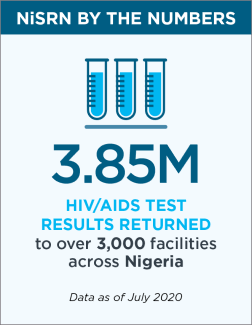
- Improved transportation infrastructure: The 3PLs provide dedicated transport services and vehicles fitted with the required cold-boxes and temperature monitoring devices to ensure safe transport of samples over vast distances.
- Optimized equipment utilization at testing laboratories: In 2018, in the 3PL’s first six months of operation, the volume of viral load test samples increased by 21 percent and reagents used by almost 38 percent.
- Greater number of health facilities accessing viral load testing service: The number of health facilities able to conduct viral load monitoring has almost doubled, increasing from 1,700 in 2018 to 3,266 in 2020.
- More samples are being tested and results returned: In the past two years, samples picked up from health facilities for laboratory analysis have increased by approximately 65 percent (from 593,958 in Year 1* to 979,983 in Year 2**) and results returned to health facilities increased by approximately 120 percent (from 326,724 in Year 1 to 721,241 in Year 2). In 2017, health facilities received 448,012 results; as of July 2020, through the use of 3PL vendors, NiSRN has returned 3,857,068 results to 3,266 facilities across Nigeria.
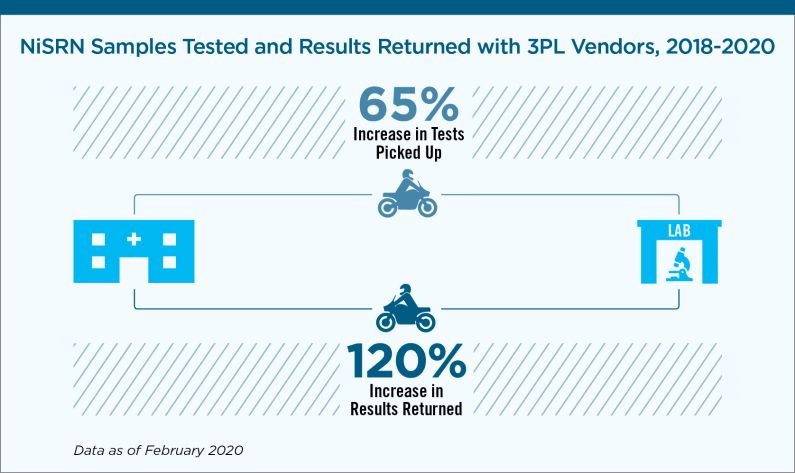
As an added bonus, the enhanced NiSRN has also improved Nigeria’s preparedness to respond to emergency disease outbreaks.
Persevering during COVID-19
Even before the spread of COVID-19, transporting specimen samples was a challenge in Nigeria, as in many resource-limited countries. The rise of the pandemic and its threat to all aspects of the health supply chain only added to these difficulties. Immediate adaptation to the new circumstances was critical to ensure that sample and result pick-ups and deliveries would stay on course to meet the needs of more than 190 million people reliant on this initiative.
“The pandemic brought about social distancing measures and suspended flights. Delays could be detrimental to the program. We had to think fast to ensure we would maintain the gains we had already made. By leveraging our 3PL providers, we could continue clinical sample transportation, which was more important than ever before,” said Theophilus Faruna, director of GHSC-PSM’s Laboratory and Logistics Program.
Enhancing Nigeria’s supply chain architecture through the new partnership between the public and private sectors ensured the resources and avenues of communication were in place to allow the clinical sample transport to continue, even during the pandemic.
Fostering Supply Chain Resiliency through Collaboration
Sample referral programs require national government buy-in, stakeholders’ cooperation, and supervision to meet objectives. These collaborations — between governments, donors, and 3PL companies — pave the way for resilient health supply chains and, in recent times, have allowed Nigeria to circumvent some potentially disastrous hurdles brought on by the pandemic.
As a result, NiSRN implementation has continued largely uninterrupted, even during COVID-19. GHSC-PSM obtained authorization letters from the Ministry of Health and other relevant government agencies and police escorts to allow 3PLs transporting clinical samples to bypass national restrictions on intrastate and interstate movement. Remote monitoring of 3PLs via phone calls enabled pick-ups and deliveries to stay on course. The project also instituted robust safety measures, such as virtual meetings, mask requirements, social distancing, and emphasizing personal hygiene, to enable ongoing specimen transport while keeping 3PLs and our own staff safe from the pandemic.
Nigeria has been able to maintain the gains it has already made towards improving health outcomes and reaching 95-95-95 targets because of this innovative partnership. “The number of samples and results transported during the first month of COVID-19 is still above the average number of monthly samples and results transported pre-COVID-19,” noted Mr. Faruna.
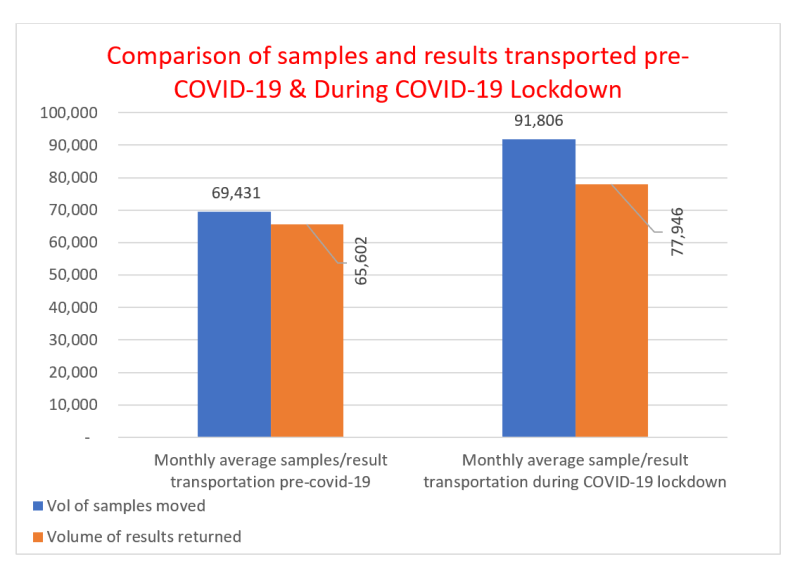
COVID-19 has provided a real-time opportunity to test NiSRN’s capabilities. The results show that its approach of using private sector 3PLs is not only safe and reliable but has also allowed the network to grow and expand its services to be able to respond to new and reemerging public health threats. While the waiting game for a diagnosis will never be easy, Nigeria has taken steps to make sure more results get to where they need to be, efficiently and securely. And its health supply chain is now stronger because of it.
* Year 1, March 2018 to February 2019
** Year 2, March 2019 to February 2020

